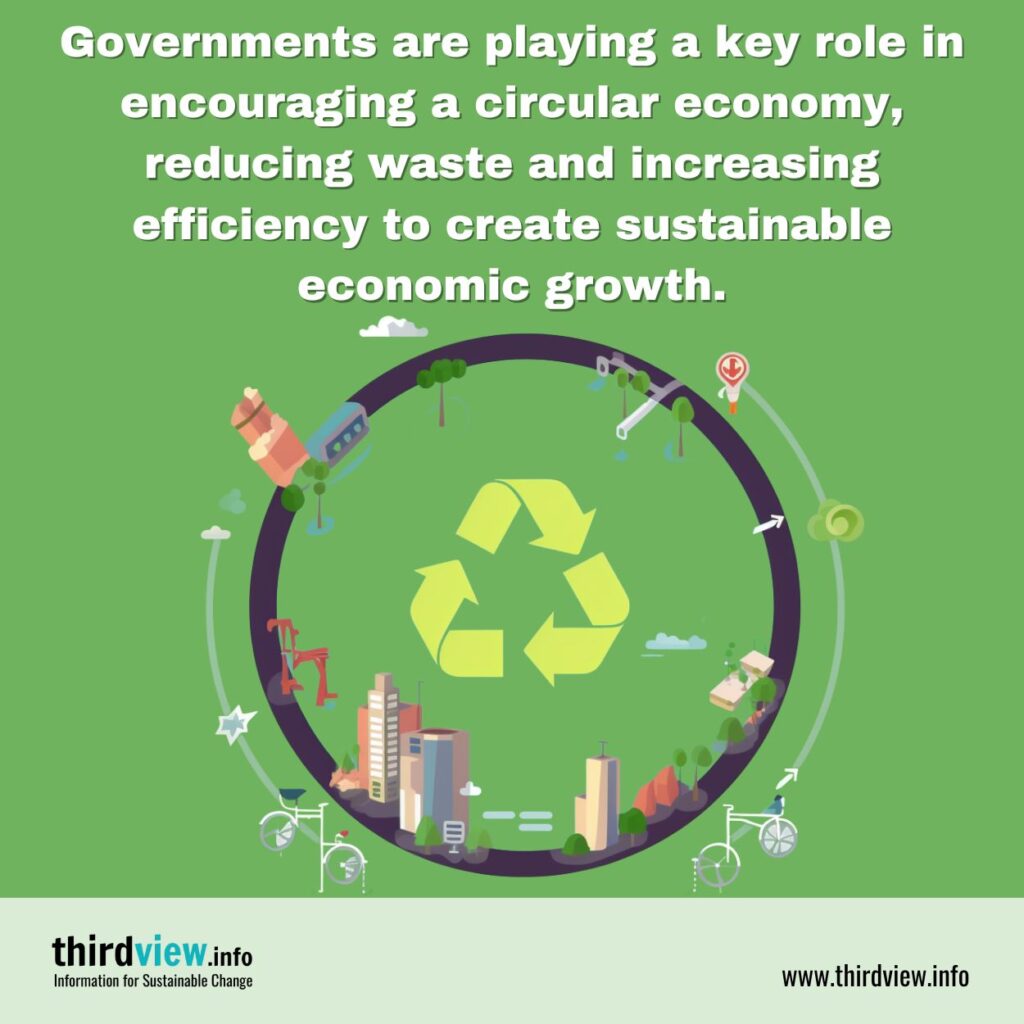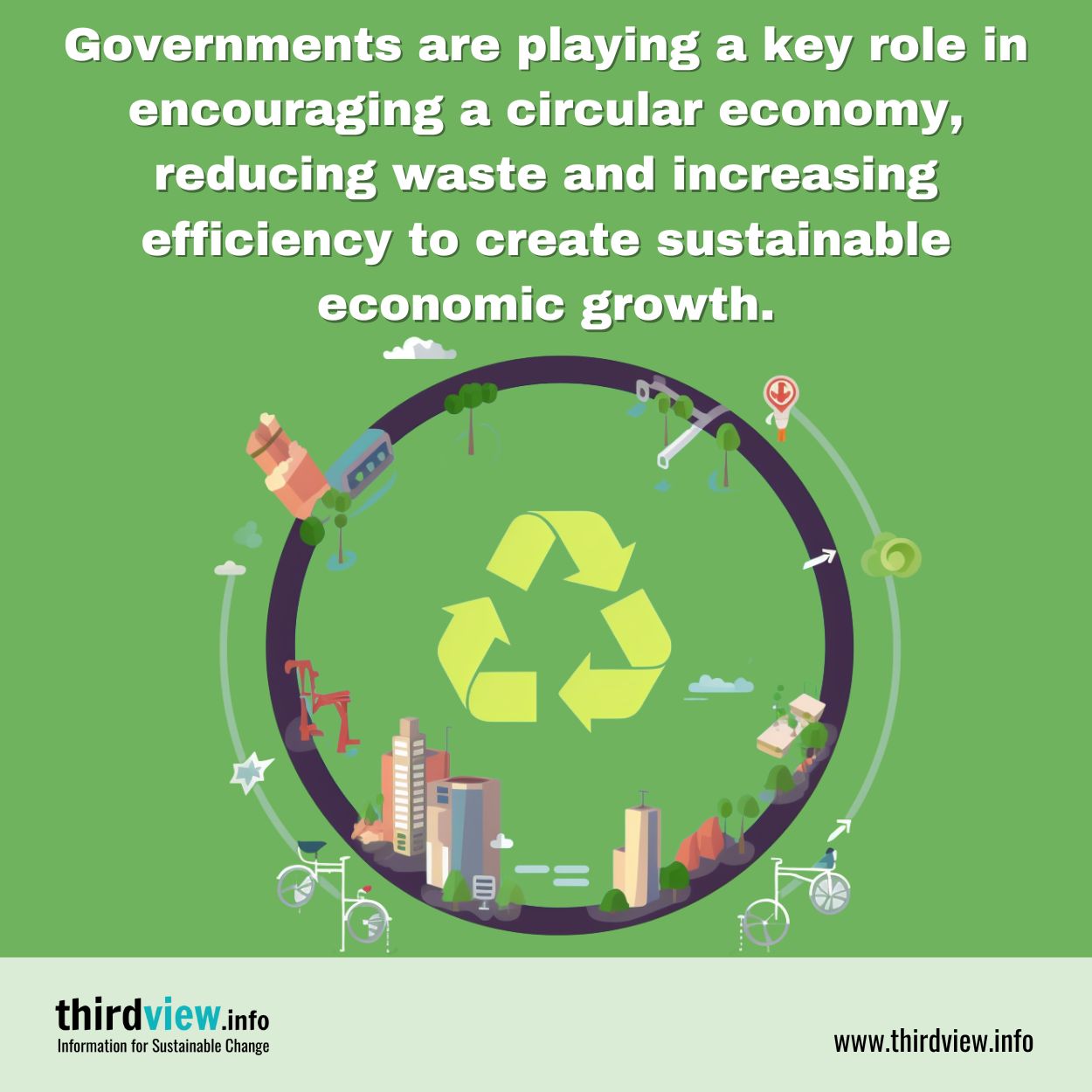In a world of finite resources and growing populations, we must consider how to use the planet’s resources wisely. One way to do this is by transitioning to a circular economy. A circular economy is an alternative economic system that seeks to reduce waste and increase efficiency in order to create sustainable economic growth. Governments are increasingly playing an important role in encouraging and developing a circular economy, so let’s take a closer look at what that means.
The Role of Government in Encouraging a Circular Economy
Government policies play an important role in driving the transition from linear consumption models (e.g., make, use, dispose) to more circular ones (e.g., reuse, repurpose). To this end, governments have implemented several policies designed to encourage businesses and individuals alike to adopt more sustainable practices. These policies include tax incentives for businesses that invest in green technologies; regulations requiring businesses to reduce their environmental impacts; public-private partnerships that foster collaboration between government agencies and private companies; and subsidies for research into new green technologies.
In addition, governments can also play an important role in educating citizens about the importance of adopting sustainable practices. This could include campaigns encouraging people to reduce their consumption or recycle materials whenever possible; providing education on best practices for reducing waste; or even offering incentives for using renewable energy sources such as solar or wind power. All of these measures help raise awareness about the importance of sustainability and spur individuals and businesses alike towards adopting more sustainable habits.
Finally, governments can also provide financial support for businesses looking to transition into more resource-efficient models. For example, some countries offer grants or loans specifically designed for companies pursuing innovative solutions related to resource efficiency or clean energy development. Such financial support helps ensure that businesses have access to the resources they need in order to implement their ideas quickly and effectively – thus helping them contribute towards building a more efficient and sustainable world.
Governments have an important role to play when it comes to encouraging people and businesses alike towards adopting sustainable practices such as those found within the circular economy model. By implementing policies such as tax incentives, regulations, public-private partnerships, subsidies for research into green technologies, educational campaigns around sustainability topics, and offering financial support for innovative solutions related to resource efficiency or clean energy development – governments can help drive change towards creating a greener future for everyone. The shift towards a circular economy will not happen overnight but with continued government effort it can be achieved over time – making it essential that governments continue their commitment towards promoting sustainability initiatives both now and into the future.


